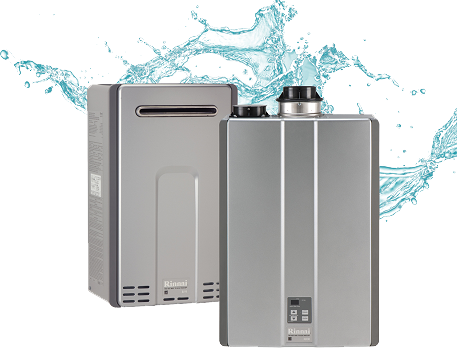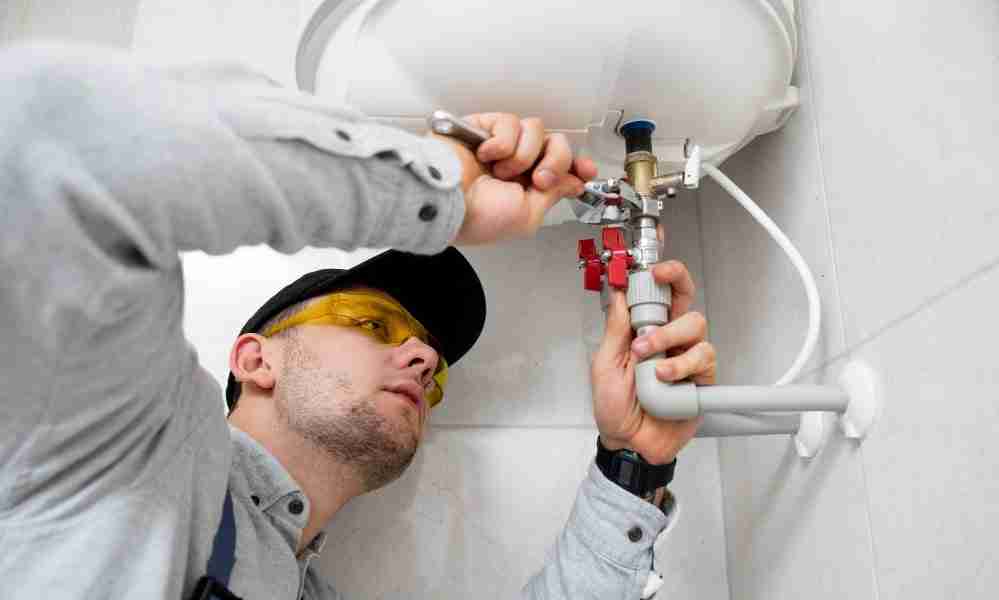Your Guide To The Upsides Of Instant Water Heaters
Your Guide To The Upsides Of Instant Water Heaters
Blog Article
Just how do you really feel in regards to Six Benefits of a Tankless Hot Water Heater?

In a world where comfort and performance preponderate, it's no surprise that property owners are constantly on the lookout for smarter methods to handle their home's power intake and comfort. One innovation that has actually steadily gotten appeal is the tankless water heater. But what exactly makes these systems stick out from the standard tank-based models most of us grew up with? Allow's dive in and check out the benefits of tankless hot water heater, aiding you determine if it's time to make the button in your home.
Introduction
Image this: you enter the shower after a lengthy day, anticipating a calming cascade of warm water, only to be greeted by icy droplets because the last person utilized it all up. Audio familiar? Standard water heaters save a fixed quantity of hot water, implying you're at the mercy of that storage tank's supply. Tankless systems, on the other hand, warmth water as needed. No more going out mid-shower, no more fumbling with schedules simply to make certain hot water is available.
Recognizing Tankless Water Heaters
What Are Tankless Hot Water Heater?
Tankless water heaters, often referred to as on-demand or instantaneous water heaters, give hot water just as it's needed. Rather than storing gallons of pre-heated water, these systems kick into action the minute you turn on the tap. Water travels through a warmth exchanger, heating up in real-time, implying you obtain an uninterrupted circulation of warm water without the need for a large storage tank sitting lazily by.
Just how Do They Vary from Standard Solutions?
Conventional heaters hold a tank of hot water, using energy to maintain that tank at a constant temperature level. Tankless systems remove the standing supply, reducing thrown away power and the bulky footprint of a big cyndrical tube. Basically, you're updating from a "accumulation" attitude to a "made-to-order" approach.
Common Kinds Of Tankless Systems
Tankless hot water heater usually can be found in 2 selections: gas and electrical. Gas versions often tend to provide higher flow rates, ideal for bigger households, while electric versions usually offer smaller homes and are typically simpler to install. Furthermore, some systems are developed for point-of-use (serving one fixture) while others can handle the whole home's hot water needs.
Trick Benefits of Tankless Water Heaters
Power Effectiveness and Price Savings
Say goodbye to warming a giant storage tank's well worth of water and maintaining it cozy all the time. Tankless heating systems decrease standby energy losses, which can lower utility bills. While the first cost might be greater, the long-term financial savings typically warrant the financial investment.
3. Space-Saving Style
If your home is short on storage, getting rid of the bulky storage tank maximizes beneficial room. Tankless units are compact and can usually be installed on walls, concealed in corners, or installed in tight energy storage rooms without gobbling up the whole room.
4. Longer Life expectancy
A well-maintained tankless water heater can outlive its tank-based relative. Standard tanks may last 10-15 years, while tankless versions can maintain downing along for twenty years or more, making them a solid financial investment with time.
1. Limitless Hot Water Supply
Ever before had to set up showers so everybody obtains their fair share of hot water? With tankless, that ends up being a thing of the past. As long as the heating system's flow capability isn't gone beyond, you can take back-to-back showers without becoming a popsicle.
5. Improved Water Top Quality
Storing water in a storage tank can sometimes result in debris build-up or a slightly "off" taste. With tankless systems, fresh water is heated up right away, reducing the chances of sediment build-up and possibly offering cleaner-tasting water.
Factors to consider Before Changing
Though the benefits are engaging, it's smart to think about a couple of variables prior to fully dedicating.
Reviewing Your Home's Water Usage Patterns
If your home at the same time makes use of multiple fixtures with high warm water need, make sure the unit's circulation rate meets your needs. Knowing your use patterns aids you choose the appropriate dimension and kind of tankless heating unit.
Maintenance and Treatment Tips
Tankless systems are relatively reduced maintenance, but they aren't set-it-and-forget-it devices.
Routine Cleaning and Descaling
Difficult water minerals can build up in the warm exchanger, impacting efficiency. Normal descaling (commonly recommended yearly) maintains the device running at peak performance.
Yearly Professional Assessments
A yearly checkup from a specialist ensures minor concerns are captured early. They'll evaluate the device's efficiency, look for leaks, and aid keep optimal performance.
Initial Investment Expenses
Tankless heaters normally come with a higher in advance price. Between the unit itself and potential installment modifications, the initial cost may give you sticker label shock. Yet bear in mind to see it as a long-lasting financial investment.
Setup Needs
Relying on your home's facilities, you may need additional electric capability or gas line upgrades. Ensure you understand the setup requirements and speak with a professional to avoid surprises.
Ensuring Correct Air Flow
For gas versions, proper ventilation is essential to safely eliminate exhaust gases. Ensure venting systems are tidy and correctly set up to stop any kind of possible safety risks.
Comparing Different Brands and Designs
Not all tankless water heaters are produced equivalent.
Looking Into Dependable Suppliers
Search for trustworthy brands with a background of generating high quality devices. A trustworthy producer commonly supplies much better client assistance and longer service warranties.
Installment: Do It Yourself or Specialist?
While some house owners relish taking on projects themselves, tankless setup could not be the very best time to burst out the tool kit.
Pros and Cons of DIY Installation
A do it yourself set up can save cash, however it comes with threats. Inaccurate installment can lead to ineffectiveness or security problems. If you come in handy and have experience, it might be feasible-- but proceed with caution.
Reading Reviews and User Feedback
User testimonials and responses from neighbors or friends that have actually gone tankless can supply beneficial understandings. Often, real-life experiences can be a lot more telling than marketing sales brochures.
When to Call a Specialist Plumbing Technician
For many, calling a pro makes certain everything's done appropriately. A specialist plumbing technician understands regional codes, sizing demands, and venting parameters, lowering the risk of incidents.
Making the most of Effectiveness
You have actually purchased a tankless device-- currently maximize its performance.
Optimal Temperature Setups
The majority of people establish their devices in between 120-140 F. Readjusting the temperature level can boost convenience and financial savings. Experiment to locate a sweet area that does not throw away power.
Coupling With Low-Flow Fixtures
Intend to extend your system's capabilities? Think about installing low-flow showerheads and taps. They minimize water use, permitting your tankless system to provide a consistent stream of hot water without straining.
Ecological Effect
Tankless water heaters straighten with greener living goals.
Reduced Carbon Impact
By using much less energy and just heating water as required, tankless systems can lower your home's carbon impact, decreasing your environmental effect.
Conserving Natural Resources
Less power consumption and much less wasted hot water convert into fewer natural resources being made use of, an environmental win-win.
That Benefits A Lot Of from Tankless Heating units?
The elegance of tankless heaters is that they can fit a range of houses.
Large Families vs. Single Residents
Big households may like the unlimited hot water supply, while single residents appreciate the energy savings from not warming a whole container for just one person's early morning shower.
Property Owners with Limited Space
If your home is short on square video, shedding the bulky tank frees up space for other fundamentals-- or perhaps simply extra elbow room.
Eco-Conscious Consumers
Going tankless aligns with environmentally friendly values, ensuring you're not squandering energy or resources.
Future Fads in Tankless Water Heaters
The world of home devices is ever-evolving, and tankless water heaters are no exception.
Innovations in Technology
R&D is constantly boosting heat exchangers, making systems more reliable and sturdy. Future designs might be also quieter, much more portable, and better matched for differing environments.
Smart Home Integration
Envision changing your hot water heater's temperature through an app or obtaining maintenance informs on your phone. As wise home technology advances, we'll see more connection and convenience.
Final thought
Selecting a tankless hot water heater is more than simply updating your home's hot water system; it's investing in long-term comfort, power performance, and a greener way of life. By considering your family's water usage, being mindful of installation needs, and dedicating to normal upkeep, you can appreciate a consistent stream of hot water without the luggage of a bulky container. As innovation evolves, you can expect even smarter, extra effective tankless remedies that not only make your life less complicated however additionally benefit the earth.
Pros and Cons of Tankless Water Heaters
Tankless Water Heater Pros
Saves Energy: Simply put, you re spending less energy to create hot water, so your total carbon footprint goes down, not to mention your bills. Lasts Longer Than Storage Tanks: Storage tank units need to be replaced every 15 years or so. But tankless units? They can last for 30 years before they give out on you. Constant Hot Water: Need to take a shower and don t want the water running cold? Awesome it won t. The water will stay hot the entire time because it creates hot water on demand. Saves You Money: Less water usage equals less money. Beyond that, you re not paying to keep water hot 24/7. Those savings add up quickly. Better for the Environment: Less water waste is better for everyone. It saves you money, but it s also environmentally conscious at the same time. Tankless Water Heater Cons
It Can Take a Minute: Depending on your specific unit and its placement, it can take anywhere from 10 seconds to 2 minutes to fully heat up. Because there s no storage tank, it heats water as you need it. Upfront Purchase Price: While we talked about their longevity, there s sticker shock when you look at brand-new tankless units to install. It pays for itself, but it s still a big chunk of change at first. Has its Limits: If you run multiple appliances at once, such as the dishwasher, washing machine, and maybe you take a shower at the same time, there might not be enough hot water. https://www.airsouthnow.com/blog/water-heater-service/pros-and-cons-of-tankless-water-heaters/

Hopefully you enjoyed reading our part about 5 Benefits of Tankless Water Heaters. Many thanks for spending some time to read our article post. Sharing is good. Helping people is fun. Thank you for your time. Revisit us soon.
Call Today Report this page